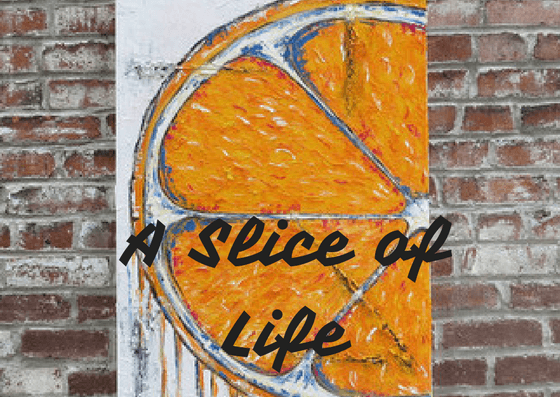Ruchira critiques three Bengali movies based on empty nests syndrome, showcasing the lives of senior citizens that are trending. An exclusive for Different Truths.

There is a band of Bengali movie directors who have, of late, begun to pan their cameras on the lifestyle and circumstances of the elderly members of society (aka senior citizens). These films revolve around the trials, tribulations, angst, misery, ailments, eccentricities, helplessness and above all the loneliness, which grips them as their youthfulness retreats. The myriad emotions, sentiments and mindsets have been vividly portrayed in these highly impressive oeuvres.
A sizable chunk of ageing or aged parents encounter the heavily rampant ‘empty nest’ syndrome because most of the children leave homes to settle elsewhere, whether in this country or abroad.
Affluent Widow
In the flick titled Sanjhbati(evening lights), directed by Leena Gangopadhyay and Saibal Banerjee, we find an affluent widow Sulekha (Lily Chakraborty) leading a dreary life in an upmarket Kolkata neighbourhood. Things would have been tougher but for a youthful pair Phuli (Paoli) and Chandan (Dev), whom she employs as domestic help. They adore and harbour genuine affection for her. And this invisible bond grows stronger with every passing day.
She also finds solace in the company of a lonely widower nicknamed Chhana da…
She also finds solace in the company of a lonely widower nicknamed Chhana da (they claim to have very old family ties), whose children live away. He plays her friend philosopher and guide all rolled into one. As the drama of her solitary life unfolds, Sulekha ends up utterly disillusioned about her sons. So strong is this disillusionment that she bequeaths her property and assets to the caregiver duo.
Sraboner Dhara (between raindrops) is a poignant tale highlighting the geriatric aspects of the lives of the older generation. The brainchild of Sudeshna Roy and Abhijit Guha, the movie attempts to depict a welter of human relationships, against the backdrop of handling and treatment of Alzheimer’s, a disease that manifests itself in very old people.
Alzheimer’s Patient
An eminent Dr Nilabha Roy (Parambrata Chatterjee) is on the verge of divorce. He lives away from his wife (Basabdutta Chatterjee) for two months. At this juncture, he gets to handle Dr Amitava Sarkar (Soumitra Chatterjee), as an Alzheimer’s patient. He also meets Sarkar’s pretty and exceedingly young wife, Subha (Gargee Roy Chowdhury). Nilabha informs Subha that Alzheimer’s cannot be fully cured. Nevertheless, Subha ought to be by his side constantly to rejig his memory.
…Nilabha has an acrimonious relationship with his wife. He even alienates himself from family and friends…
Simultaneously, Nilabha has an acrimonious relationship with his wife. He even alienates himself from family and friends, in his maniacal efforts to become a high-profile doctor. Interestingly, he perceives in the Sarkars an amazing manifestation of love. Subha exudes unalloyed loyalty towards her spouse knowing full well that recovery is well-nigh impossible. Though she has immense potential and opportunity to live life on her own terms, yet she prefers to stay with the senile partner, loving him with all heart, expecting nothing in return.
The film deftly achieves its two-pronged objective: the doctor’s total transformation, as well as Subha’s journey towards a more meaningful existence. Most importantly, Sraboner Dhara, manages to shatter several taboos connected with Alzheimer’s and marital relationships involving couples with huge age differences.
Thought-provoking Movie
Borunbabur Bondhu, directed by Anik Dutta, is yet another sensitive thought-provoking movie in this genre. The octogenarian Borunbabu (Soumitra Chatterjee) is portrayed as the head of a modern-day, cultured, but middle-class Bengali family, based in Kolkata.
He is lonely, peevish, and short tempered, despite having a large family that is dutiful, but neither caring nor close to him.
He is lonely, peevish, and short tempered, despite having a large family that is dutiful, but neither caring nor close to him. His wife, Lolita (Madhabi Mukhopadhyay) incidentally is bedridden. His only constant companion and confidante is his school friend, Sukumar(Paran Bandyopadhyay).
Life is hunky-dory until one day an old school friend (now a powerful politician) contacts Borunbabu and plans to visit his home. As the news breaks, all of a sudden, the prevailing atmosphere gets electrified, surcharged with emotion, plans, machinations, and selfish motives.
In a subtle manner, the film lampoons human follies, foibles, mean, selfish traits…
Neighbours, acquaintances, and people who didn’t maintain regular contact with him earlier, suddenly turn honey-sweet and begin cosying upto him. Everyone appears to have his own axe to grind, which they feel they can manage with help from the ‘VIP friend’. In a subtle manner, the film lampoons human follies, foibles, mean, selfish traits, and other human weaknesses. And therein lies its success.
All said and done, given the rapidly changing social milieu in which all of us live today such sensitive films are the need of the hour. Let’s hope they will effectively rankle the conscience of the self-centered, insensitive progeny and push them to fulfill the needs of and take better care of their aged parents.
Visuals by Different Truths






 By
By
 By
By
 By
By
 By
By